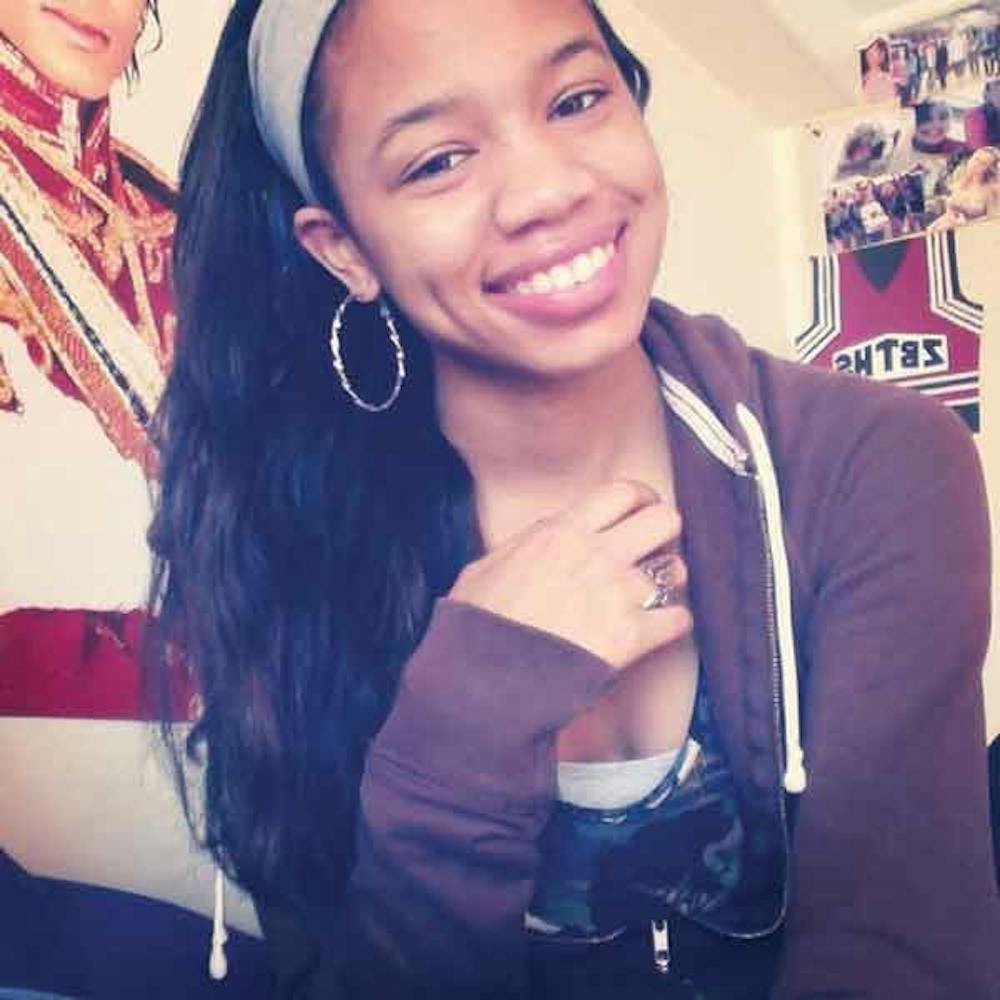Rosnellys Perez’s morning routine usually consists of the perfected application of foundation, concealer, powder, eyeliner, mascara and a dap of lip-gloss. Depending on her mood, eye shadow gets thrown into the mix.
But on March 18 and the seven days that followed, the junior criminal justice major headed to class, feeling self-conscious and leaving the stash of makeup untouched on her vanity.
That Monday marked the start of Perez’s project to go a week without makeup.
Over the next seven days, more than 200 women supported her endeavor by foregoing their makeup for at least a day.
THE CHALLENGE
Perez’s project began with a conversation she overheard between her friend’s 7-year-old cousin and other young girls.
The seven girls, ranging between 7 and 9 years old, were flipping through a copy of Seventeen Magazine when one girl said she didn’t feel pretty.
“Why don’t you feel pretty?” Perez asked.
“Because everybody who’s pretty wears makeup and our parents don’t allow us to wear makeup,” Perez recalled the young girl saying.
Although Perez tried to convince the girls they were beautiful, none of them believed her because she was wearing makeup at the time.
“What can I do to prove to you that you do not need makeup to feel beautiful?” Perez asked.
The girls gathered around for a minute and came up with a challenge.
“You need to go a week without makeup,” they said. “And for us to know you’re actually doing it, you have to send us pictures.”
That night, Perez tweeted and posted on Facebook about her experience, asking for others to help by sending pictures of themselves without makeup.
“Many young girls struggle with low-self esteem because of the media & society,” she tweeted. “It’s time to change that...”
THE PRESSURE
Perez could relate to the girls’ insecurities. Though she was never concerned with makeup and she wasn’t allowed to wear it until she turned 15, she struggled with her weight from first grade until eighth grade.
“I just know how it is to grow up with really low self-esteem,” Perez said.
According to Heart of Leadership, a program dedicated to empowering young women, a girl’s self-esteem peaks at age 9. If self-esteem is already low at that age, the struggle to bring it back up becomes more difficult.
Perez said she feels the media has only increased the pressure on young girls to correct imperfections with makeup. She recalled watching cartoons growing up, so those pressures weren’t as intense.
But now, with stars of shows such as “Wizards of Waverly Place” and “Sonny with a Chance” wearing obvious makeup, young girls are being presented with a different challenge than what Perez faced.
“How can you tell a girl that you need to feel pretty as you are, but in the media [wearing makeup] is the only message they’re seeing,” Perez said.
In 2005, the average age that girls began using makeup was 17. Four years later, the average was 13 years old, according to NPD Group, a consumer research company.
But girls even younger than that have started wearing makeup.
From 2007 to 2009, according NPD the number of girls ages 8 to 12 who use mascara, eyeliner and lipstick on a regular basis all rose: 10 percent to 18 percent for mascara, 9 percent to 15 percent for eyeliner and 10 percent to 15 percent for lipstick.
THE PICTURES
When Perez went the night of the conversation, she assumed only a few friends would respond to her tweet.
But when she woke up the next morning, Perez found 50 pictures in her email inbox. By the end of the week, she had 215 pictures and more on the way.
She knew some women in the pictures, and others she didn’t. Through Twitter, Facebook and Instagram, friends of friends had spread the word about her project.
Perez received photos from friends back home in the Dominican Republic, from various students around Indiana and even from Korea.
Some women sent pictures for one day and others for the whole week. Some even posed with their significant others to show that their love didn’t depend on makeup.
“I just thought it was really cool how she took this idea and ran with it,” said Hilary Meister, a junior from IUPUI who participated in the project. “I think it’s just going to inspire more than she’s realizing, more than just the group she was working with, women of all ages.”
The girls have no idea that anyone other than Perez was doing the challenge. She plans on compiling the photos into a YouTube video to send them.
But just because the video is being sent, it doesn’t mean that Perez wants the project to end. She wants people to continue spreading the word.
“This is not my project. This is not Rosnellys’ project. This is our project,” she said. “As women, it’s really beautiful to see when we come together instead of bringing each other down.”
WEEK’S END
Perez’s week without makeup ended on Sunday. But Monday afternoon, she sat with a friend flipping through a scrapbook at her job in the Multicultural Center, still fresh-faced.
One week prior, she had been self-conscious, trying to hide behind her desk, afraid that people would point out flaws that only she saw.
“Makeup was my mask,” Perez said. “If I didn’t feel pretty, with makeup I could.”
While she will still probably wear makeup some days, Perez feels different about it now. Instead of feeling like she has to wear it, she now knows she has the option. The choice is in her hands, not society’s.
“It took a group of little girls to tell me I have that power,” she said.


